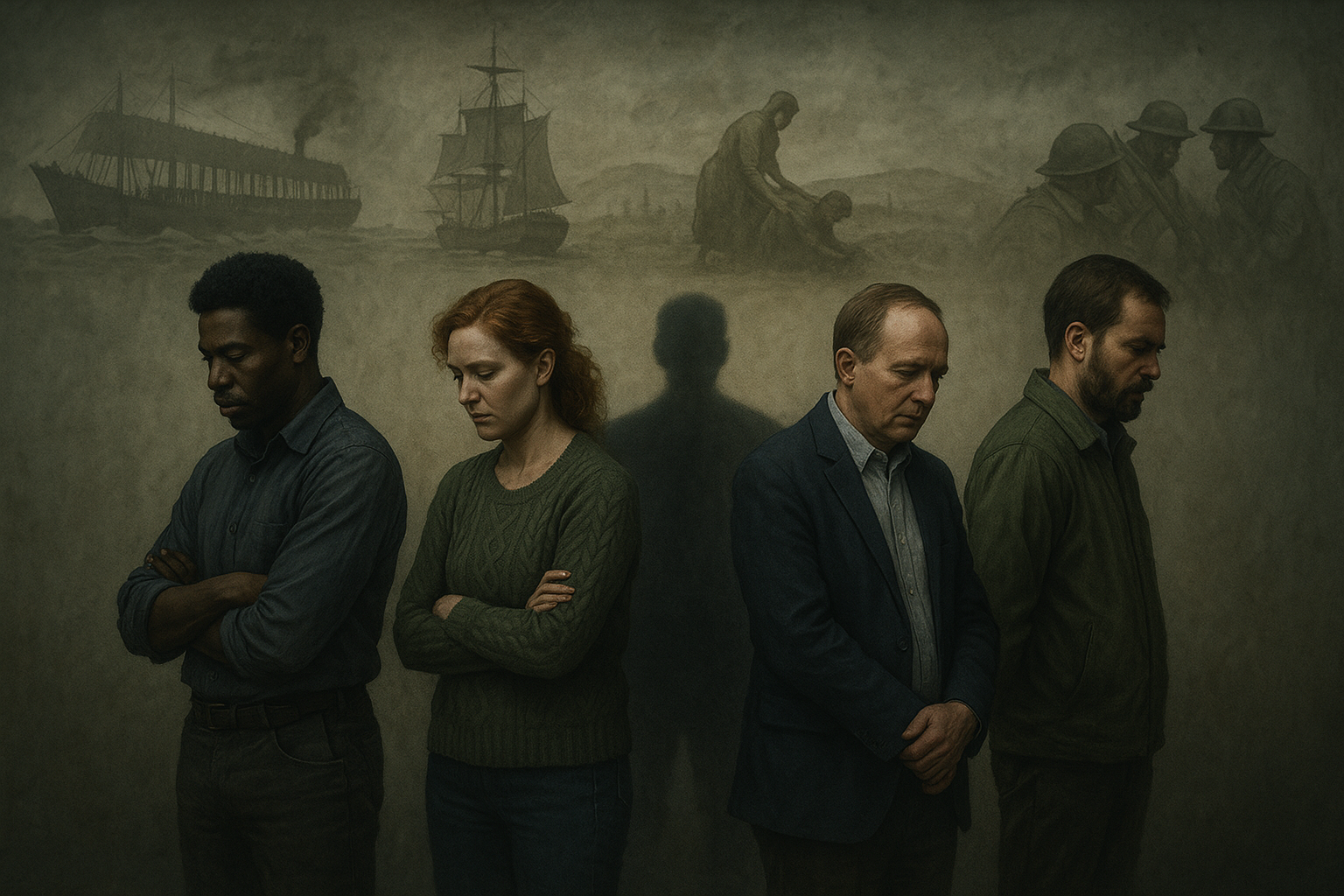Why ‘Generational Trauma’ Misses the Point: It’s Actually Historical Learned Distrust

Title: Why ‘Generational Trauma’ Misses the Point: It’s Actually Historical Learned Distrust
In recent years, the term “generational trauma” has become a popular way to explain the lingering impact of historical injustices on communities today. But is it the right term? I don’t think so. Trauma is an intensely personal experience, a sudden shock or repeated harm to an individual’s mind and body. By definition, trauma cannot be inherited. You can inherit stories, fears, or behaviors from your ancestors, but you cannot inherit their trauma.
What we can inherit, however, is distrust. And that is an entirely different story.
Let’s Call it Historical Learned Distrust
Historical Learned Distrust is the idea that people in a community learn to be wary of others, not because they have personally suffered trauma, but because they have been taught caution through attitudes, beliefs, and behaviors passed down through families and communities. This kind of distrust is not pathological. It is a survival instinct, shaped by lessons and examples shared by those who lived through real dangers and injustices.
Psychological Roots of Learned Distrust
Psychologists describe this as social learning, the process of observing how others respond to threats and adjusting our own behavior accordingly. Children in marginalized communities hear stories of discrimination and see how their parents and grandparents react to outsiders. Over time, this caution becomes second nature. It is not trauma. It is a learned way of seeing the world.
Social learning is powerful because it relies on examples and repeated lessons. A child sees that their parents keep their distance from certain groups or speak with caution when discussing certain topics. The child learns that this is how to stay safe. Eventually, this learned behavior becomes part of their identity and worldview. But it is not trauma. It is a practical response to what they have been taught about past dangers and how to avoid them.
Examples in the Real World
Take Black Americans in the United States. They grow up hearing the history of slavery, segregation, and systemic racism. They know that for generations, Black people faced suspicion, violence, and exclusion. So even if a Black child today has never personally faced these injustices, what they have been taught about that history shapes how they see the world. They learn caution.
Similarly, the Irish have been shaped by the long history of colonization, famine, and centuries of English rule, first the Vikings, then the Normans, and finally the English. These lessons are taught in schools, shared in family stories, and woven into the national identity. The result is a wariness of foreign interests and a fierce sense of self-protection.
Even the British themselves are influenced by lessons from their history, such as old rivalries and conflicts that led to a lingering distrust of the French, the Germans, or any outsider who might challenge their national story.
Why “Trauma” Isn’t the Right Word
Trauma is too big a word, and too clinical. It suggests a permanent wound, an inescapable legacy of suffering. But Historical Learned Distrust is not about damage. It is about adaptation. It is about communities teaching each other how to guard against betrayal and injustice.
Recognizing this distinction is important. When we call it trauma, we risk making people feel like permanent victims, as if they are doomed to carry the pain of their ancestors. But that is not true. People are not born carrying trauma. They are born into a world where caution and suspicion are taught, and those lessons can be unlearned through exposure, dialogue, and mutual understanding.
Using the wrong word can also encourage a sense of fatalism. If people believe they carry trauma that is not truly theirs, they may feel stuck or helpless. But Historical Learned Distrust is different. It says that while history influences how you see the world, you also have the power to change how you respond to it.
Towards a More Honest Language
By using a term like Historical Learned Distrust, we acknowledge the real impact of history on how communities see and react to others. But we also avoid the confusion of calling it “trauma,” which medicalizes something that is actually a learned response to past injustices.
In the end, this is a call for more precise language. It respects the weight of history while giving people the freedom to understand, question, and ultimately move beyond it.








